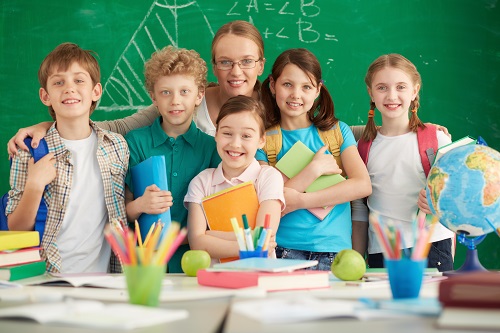Understanding the Benefits of SEL for Teachers and Students
 Ravinder Thakur
Ravinder ThakurIntroduction
Social-Emotional Learning (SEL) has been increasingly important in education over the past few years. SEL teaches kids the abilities they need to control their emotions, form wholesome relationships, and take charge of their actions. Although SEL's effects on children have received a lot of attention, it is equally vital to comprehend how SEL may help instructors. The transformational potential of SEL in education is highlighted in this essay, which also examines the advantages of SEL For Teachers and students.
Teacher Well-Being Through SEL:
The lives of kids are significantly shaped by their teachers. The rigorous nature of the work, however, can frequently result in stress, burnout, and decreased job satisfaction among instructors. Here's where SEL comes into play. Teachers may improve their resilience and well-being by incorporating SEL For Teachers into their daily life, which will increase their work satisfaction and career longevity.
SEL gives educators the necessary tools for self-awareness and self-control. It supports their ability to recognize and control their emotions, lessen stress, and have a positive outlook. Teachers can get a better awareness of their strengths and weaknesses through SEL activities, enabling them to prioritize self-care and create attainable objectives. As a consequence, teachers have better mental health, less burnout, and overall better health, which immediately translates into a better learning environment in the classroom.
Changing Education: Creating a Positive Learning Environment
One of SEL main advantages is its capacity to foster a supportive and encouraging learning environment in the classroom. Students who have teachers who place a high priority on SEL develop a sense of respect, empathy, and belonging. Teachers may foster a climate of compassion, collaboration, and inclusion by setting an example of good behavior and integrating SEL tactics into their lesson plans.
A classroom that incorporates SEL for teachers gives kids a secure setting in which to express themselves, grow as social beings, and form enduring bonds. Teachers who have received SEL training are better able to resolve disputes, advance good communication, and establish a supportive peer environment. These abilities result in fewer behavioral problems, better student involvement, and more academic success.
SEL for Students: Social and Emotional Learning
SEL has advantages outside of the classroom. SEL programs help students build critical social and emotional competencies that are necessary for success in life. Students who participate in SEL programs develop emotional intelligence, which includes the ability to identify and comprehend their own emotions, empathize with others, and successfully manage interpersonal interactions.
Students gain self-awareness and self-regulation through SEL, helping them to better manage stress, anxiety, and conflicts. They gain empathy and perspective-taking abilities, both of which are necessary for forging enduring bonds with others. Additionally, SEL improves students' capacity for decision-making by guiding them to make moral decisions and take into account the effects of their choices.
Academic Progress in Education Transformation
There is a clear connection between SEL For Teachers and academic success, according to research. Students are more likely to be motivated, interested, and focused on their studies when they possess emotional and social intelligence. With the help of SEL, kids may create objectives, overcome obstacles, and cultivate a growth attitude.
Teachers may foster the best learning environments by integrating SEL into their lesson plans. Students are more engaged in class and achieve academic achievement when they feel appreciated, respected, and empowered with Transforming Education. SEL techniques also help children become more creative, critical thinkers, and problem solvers, giving them a more well-rounded education.
Conclusion
A significant instrument with the potential to revolutionize Transforming Education is social-emotional learning. Develop an environment in the classroom that promotes well-being, emotional intelligence, and academic accomplishment by making SEL a priority for teachers and students alike. Teachers have improved health, less stress, and more work satisfaction while kids acquire critical social and emotional skills that are essential to their success in general.

Subscribe to my newsletter
Read articles from Ravinder Thakur directly inside your inbox. Subscribe to the newsletter, and don't miss out.
Written by

Ravinder Thakur
Ravinder Thakur
Social and emotional learning (SEL) is the process through which children and adults acquire and effectively apply the knowledge, attitudes, and skills necessary to understand and manage emotions.